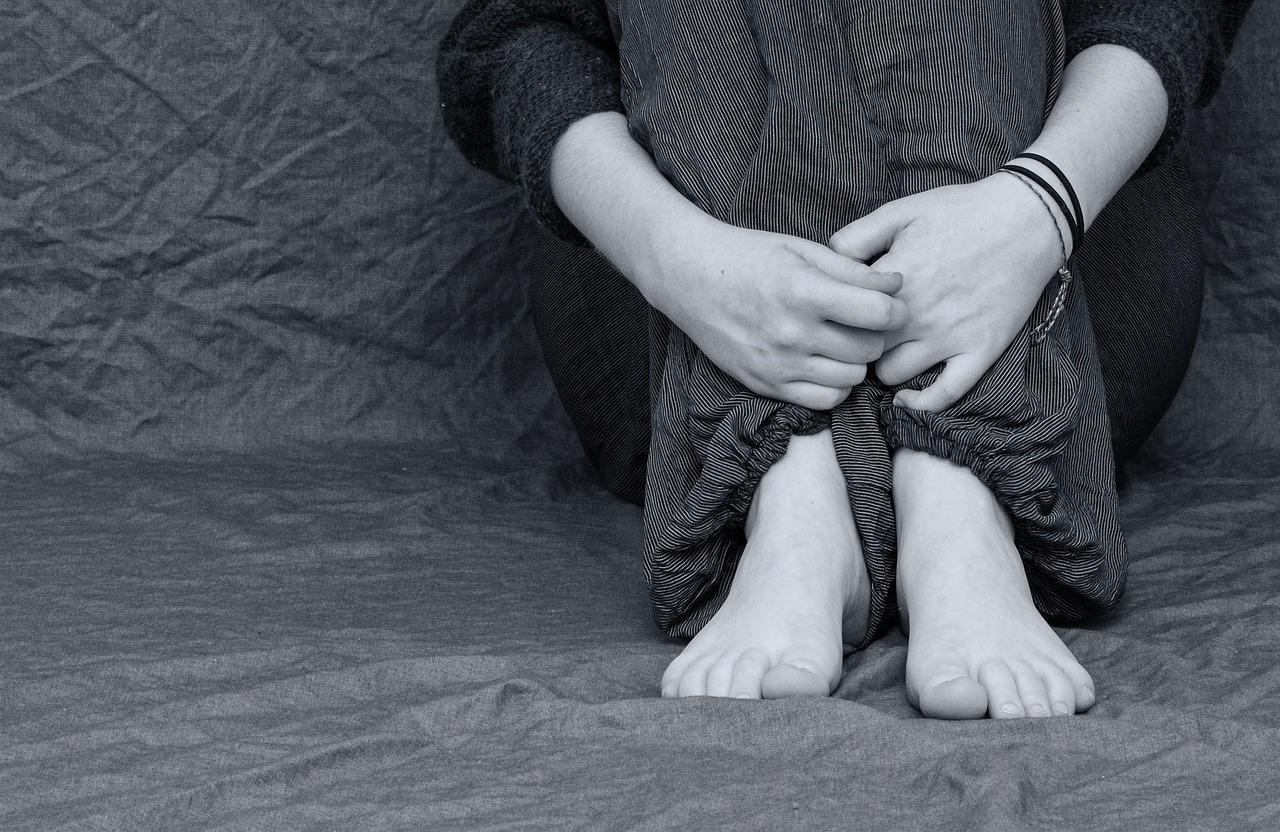Losing someone you love is never easy, and then we begin to have reason to fear that they may be going before us. Fear of losing someone you love is based on the idea that something terrible will happen to them without us being able to do anything about it.
Life sometimes is unfair, and sometimes our loved ones are involved in accidents that derive from death, or they may have terminal diseases. We all have to face the fact that what happened to them can also happen to us.
But there is something you must understand when someone close dies; it is not your fault. It happens because it was supposed to happen. The truth is that you can help them but not stop them.

It may be challenging for us to accept that someone we love will die soon or has just died. When this happens, our fears give birth to all sorts of reactions. Many people experience intense anger and guilt because they believe that their relatives could have been saved, and they blame themselves because it happened. We may also feel that we should have seen it coming, and we do not understand why others didn’t notice the signs of what was going to happen; we might even think that someone wanted to hurt them or take advantage of them.
However, these feelings are only based on fear of losing someone you love.
There are no signs of what will happen, nor can you do anything about it. It was not your fault, and there is nothing you could have done to stop it. Your feelings are only natural if this happens.
Talk with people who care about you and ask them for their support, whether friends or other family members. And remember that your grief is necessary, but you need to accept it and move on with your life.
What are the effective ways to cope with the fear of losing someone you love?
Below are 12 practical ways to cope with the fear of losing someone you love –
1. Talk about what you are feeling
This is one of the best ways to deal with the fear of losing someone you love because it helps you work through your feelings. You can choose who to talk to, whether friends or family members. If possible, try to talk with people who care about you, but they must be supportive. Or you can try to find someone outside the family, such as a friend or colleague, whom you can trust enough to share your feelings with.
2. Be patient with yourself
When someone dies or leaves us, our lives change forever, so it’s normal for this to overwhelm us. You may try to avoid your feelings by keeping busy, but this won’t help you overcome them. You should focus on what you’re feeling now and let those feelings out.
3. Set a reasonable goal
Don’t expect yourself to go through the grieving process immediately or even within a few months. It takes months, sometimes even years, to deal with the loss of someone you love. But you should not let your anxieties and fears about your future immobilize you.
4. Do something nice for yourself
When we lose someone we love, we often neglect ourselves and our needs. We might stop exercising or eating correctly and not take time for ourselves. But it’s important to do things you enjoy and feel good about because this will help you move forward in your life.
5. Do not blame yourself
Your loved ones were happy that they had the opportunity to spend their lives with you, and they would want you to be happy too after they’re gone.
6. Accept the loss
When someone close dies, it’s hard to accept that this is happening, especially if it is sudden or unexpected. You may feel angry because you believe that your loved one could have been saved if only you had done more for them, but there are no signs of what will happen, nor can you do anything about it. So take the time to realize what has happened fully, and give yourself room to express your feelings of sadness, anger, or frustration.
7. Be patient with others who are suffering
When someone close dies, family members may experience intense emotions that they have difficulty expressing. The family will turn to you for support, but you should not feel responsible for providing it or that you need to take care of all their needs. At the same time, be patient with others dealing with this loss, too, because they may not know how to comfort you.
8. Turn your attention elsewhere
When someone close dies, our thoughts often revolve around them and the memories we shared, and it’s hard to think about anything else. You may try to escape from your thoughts or avoid them by keeping busy, but this won’t help you overcome the pain of grieving. Instead, focus all your attention on something new that you can achieve in your memory.
9. Take deep breaths
When we get upset, we often breathe quickly and shallowly to cope with our anxiety. But this isn’t helpful because it can make you feel lightheaded or even dizzy. Instead, take deep breaths from your diaphragm or abdomen area, which will calm you down a lot.
10. Stay socially active
People who are socially inactive after the death of a loved one tend to be more likely to suffer from anxiety and depression, but this does not mean you should keep busy all the time to avoid your feelings. Instead, let yourself spend some time doing things that make you feel good, such as spending time with friends or family, listening to your favorite music, or reading a good book.
11. Find a quiet place
When you mourn, it can be challenging to focus on anything else. But if you don’t take the time to relax and calm your mind, you will feel worse afterward. So find some time each day when you can sit quietly without any distractions (such as music or TV), close your eyes, and try to clear your mind.
12. Educate yourself
It is natural to want to find out all you can about the person who has died and their illness, and it’s important not to feel ashamed if this information helps you come to terms with your grief. But too much information can make you feel worse because it’s difficult for people to process anything too complex. Find out what you need to know, and then focus on something else.
13. Remember that grieving is a life-long process
During the first couple of years after someone close has died, it’s normal for our thoughts to turn constantly toward them. But over time, these thoughts will become less frequent, and your feelings of sadness will be interspersed with happy memories. Try to embrace this new stage in your life because it means that you finally accept that you can move on, but don’t forget the person who has died either.
15. Get enough sleep
Lack of sleep can affect anyone’s moods, but it can be a real problem for somebody who is grieving because they may feel too anxious to sleep. But you should still try to get your usual amount of shut-eye because it will make you feel much better in the long term.
How can one overcome the fear of losing someone?

Coping is different from overcoming; hence the need to overcome the fear of losing someone cannot be over-emphasized. The process of coping with a loss is usually aimed at healing the emotional pain and coming to terms with the reality that a loved one has died. On the other hand, overcoming one’s fear means controlling the thoughts and emotions that arise when you think about losing someone close in the future.
So below are the overcoming techniques for fear of losing someone’s tips;
1. Be logical
When you think about the possibility of losing a loved one, it is natural to experience fear and anxiety. But if this fear starts to affect your daily life, try taking some time to calm down and reason about what is happening. Write down all your fears in detail, then ask yourself what the worst can happen, and write down a plan for coping with this outcome. Putting your thoughts in writing will help you gain a more realistic perspective on your situation.
2. Find comfort from others
When you think about losing someone close to you in the future, it’s normal to feel alone and vulnerable. But it would help if you didn’t try to cope with this fear on your own because it can be difficult for one person to deal with their feelings. Try talking about your fears with someone you trust instead, whether a friend or family member or even a counselor or therapist.
3. Talk back to your negative thoughts
It’s also important to ask yourself why you have negative thoughts about losing someone. Are these fears realistic, or are they based on the fear itself? Are you thinking in an all-or-nothing way, catastrophizing your situation (“If I lose this person, I will be completely alone”)? If so, try putting your negative thoughts in perspective.
4. Be active
It’s essential to find ways of keeping yourself busy after your loved one has died, whether this means starting up a new hobby or simply making plans for the future. But physical activity is also suitable for you because it releases endorphins that will make you feel happier and more optimistic about life.
5. Join a support group
If you can’t think of anything else to do, join a bereavement support group where you’ll be able to share your feelings with others in much the same situation as yourself. The simple act of talking about what happened will help remove some of the burdens that these emotions can bring, so it will be worthwhile to meet up with other people looking for the same thing as you.
6. Don’t ignore your thoughts
Finally, remember that ignoring your feelings of anxiety and fear won’t make them go away. It may feel like these emotions come from nowhere and do nothing but make you miserable right now, but ignoring them will not stop them from coming back. If you ignore these fears, they will only be stronger next time.
Remember that your fear of losing someone close in the future is a widespread reaction to a loss. It may be difficult for you to cope with these emotions when they arise, but the best way to deal with them is by accepting that they are there and making a conscious effort not to let them control your life. In other words, take it one step at a time and focus on making yourself as happy as possible.
In conclusion
The root of the fear of losing someone lies in the emotions that arise when we think about what would happen if our loved ones disappeared from our lives one day. The first step toward dealing with this fear is understanding why it arises and learning to accept these feelings as usual even though they might be uncomfortable. Once you’ve done so, you will be better able to cope with these emotions and find a way of dealing with them that works for you.
So remember, fear can be crippling, but it is possible to defeat this fear by realizing how normal your emotions are and accepting that these feelings will not harm you in any way. These positive steps will go a long way towards helping you move forward and enjoy life as much as possible despite your fears.


